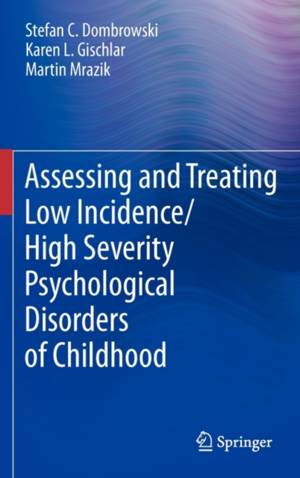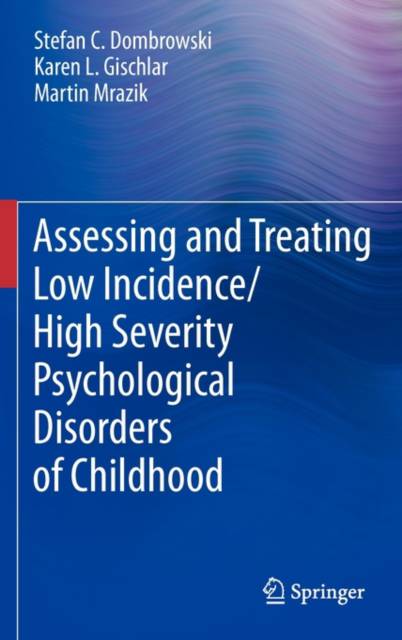
- Retrait gratuit dans votre magasin Club
- 7.000.000 titres dans notre catalogue
- Payer en toute sécurité
- Toujours un magasin près de chez vous
- Retrait gratuit dans votre magasin Club
- 7.000.000 titres dans notre catalogue
- Payer en toute sécurité
- Toujours un magasin près de chez vous
Assessing and Treating Low Incidence/High Severity Psychological Disorders of Childhood
Stefan C Dombrowski, Karen L Gischlar, Martin MrazikDescription
During the past several decades, interest in children's psychological disorders has grown steadily within the research community, resulting in a burgeoning knowledge base. The majority of the attention and funding, not surprisingly, has focused on the more prevalent and well-known conditions. Although this raises the odds that young people with more well-known disorders such as ADHD, autism, and learning disorders will receive much-needed professional assessment and intervention, children with less frequently encountered disorders may experience a higher risk of misdiagnosis and inappropriate treatment.
Useful data has been scattered throughout the literature for severe-but-less-frequent childhood psychological disorders, including: fire setting; gender identity disorder; impulse control disorders (i.e., kleptomania, trichotillomania, intermittent explosive disorder); selective mutism; Munchausen by proxy; childhood schizophrenia; gang involvement; sexual offending; self-injurious behavior; and feral children. This concise volume offers up-to-date information on these conditions, which, though relatively rare, may have profound effect not only on the children themselves but also their families, friends, and the community at large. Coverag
e of each disorder is presented in an accessible format covering:- Overview and history.
- Description and diagnostic classification, with proposed changes to the DSM-V.
- Etiology and theory.
- Assessment tools and interview protocols.
- Commonly used psychological and pharmacological treatment options.
- Current research issues and directions for future investigation.
Assessing and Treating Low Incidence/High Severity Psychological Disorders of Childhood is a must-have reference for researchers, clinicians, practitioners, and graduate students in clinical child and school psychology, pediatrics, psychiatry, social work, schoolcounseling, education, and public policy.
Spécifications
Parties prenantes
- Auteur(s) :
- Editeur:
Contenu
- Nombre de pages :
- 254
- Langue:
- Anglais
Caractéristiques
- EAN:
- 9781441999696
- Date de parution :
- 08-07-11
- Format:
- Livre relié
- Format numérique:
- Genaaid
- Dimensions :
- 156 mm x 234 mm
- Poids :
- 553 g







